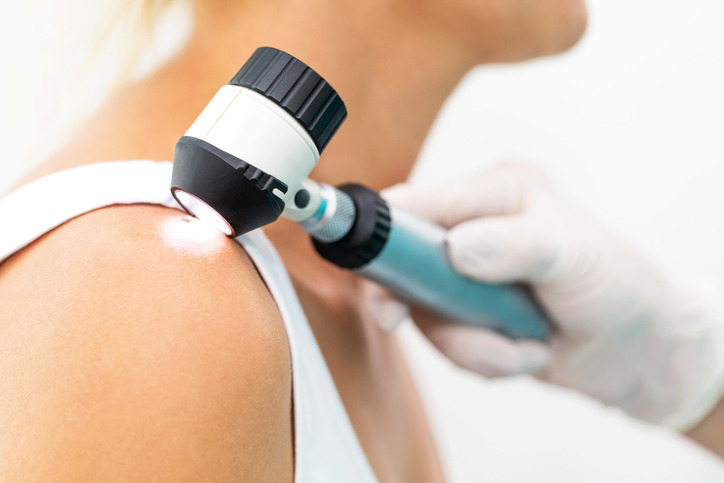Full Skin Assessment

Everyone should have regular skin checks
Unfortunately, when it comes to skin cancer, many people only seek help when it’s too late. It is important to set up regular appointments to keep an eye on changes and have regular examinations by a trained, accredited skin cancer doctor. The importance and effectiveness of early melanoma detection cannot be overemphasized. The survival rate for someone in early stages is remarkable. As the disease progresses, survival rates go down dramatically.
One of the easiest ways to assess the signs of melanoma is through the ABC’s of skin cancer. A mole needs to have an Appearance that does not change rapidly. If you have a mole that suddenly grows larger or is raised from the surface of the skin, get it checked out. If the mole is benign, it will normally have Borders, which are even and regular. A mole with jagged edges is also one that needs to be evaluated by a professional. The Colour of a mole should be normal as well. Moles are usually a shade of brown, and any other colour should be looked at, before it is dismissed as being nothing to worry about.
If you are worried about your skin health Contact us on 0800 754 625 today to make your appointment for a full skin assessment at the Upper Hutt Skin Clinic.
When you visit the Upper Hutt Skin Clinic for your initial consultation, our highly trained Doctors and Nurses will give you a full skin assessment. This involves a full body skin examination with Dermatoscopy. A dermatoscope is a hand held instrument which uses epiluminescence microscopy to look deep into your skin. This allows our trained doctors to recognise the microscopic signs of skin cancer. It also gives you confidence that moles are normal and do not require excision. Your risk of skin cancer will be assessed using New Zealand Guidelines. A Personalised Management Plan will be developed based on examination findings and risk. You will be given recommendations and advice on treatments and skin care.
Following your full skin assessment you may require some treatment to remove or test a skin lesion or to treat areas of sun damaged skin. This will be discussed with you following your appointment and a treatment plan which you are comfortable with agreed upon. You can feel safe in the knowledge that your risk for skin cancer has been assessed using the latest technology and you are in experienced hands.
Dermatoscopy
Our doctors are trained in the use of Dermatoscopes. These are hand held instruments which use epiluminscent microscopy to look deep in to the skin. This allows our trained doctors to recognise the microscopic signs of skin cancer. It also gives confidence in checking that moles are normal and do not require excision.
New Zealand guidelines for skin cancer identification
The following criteria are used for identification of skin cancer risk:
- Age and Gender
- Previous history of skin cancer
- Number of moles
- Family history of skin cancer
- Skin and hair pigmentation
- Response to sun exposure
- Evidence of sun damage.
